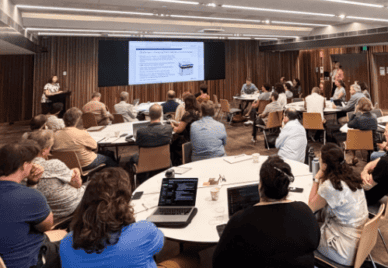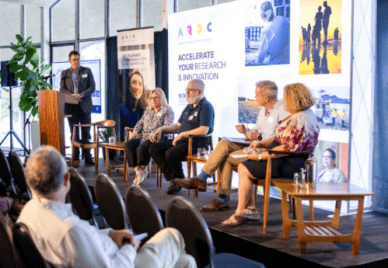
EcoCommons Australia will begin external testing of its new online modelling platform during the 61st annual conference of the Ecological Society of Australia, ESA2021, to be held on 22-26 November.
EcoCommons, a research platform supported by the ARDC, is a partnership of 9 organisations, representing a $5 million investment to create a world-leading ecological and environmental modelling tool to support environmental problem solving.
During the initial testing, ESA2021 attendees will work through the improved functionality drawn from the ecocloud and the Biodiversity and Climate Change Virtual Laboratory (BCCVL) platforms, which are migrating to EcoCommons. There will be 2 introductory workshops on coding in R using EcoCommons’ coding environment, and a further workshop on species distribution modelling and climate projections using the simple online tools.
EcoCommons Program Manager, Dr Elisa Bayraktarov, will also provide an overview of the online modelling platform.
Over the next 12 months, EcoCommons will be adding several additional scientific workflows, including Community Modelling tools working with Generalised Dissimilarity Models, and Biosecurity Risk Mapping.
The EcoCommons team are excited to learn what kinds of improvements or additional workflows would help make the lives of ecological modellers easier. You can become an EcoCommons Pioneer and help shape the evolving platform, before it is officially launched at the next Ecological Society of Australia conference in November 2022.
Learn more about EcoCommons in our case study, and become an EcoCommons Pioneer.
EcoCommons is a partnership of 9 organisations: Australian Research Data Commons (ARDC), Atlas of Living Australia (ALA), The University of Melbourne, CSIRO, Griffith University, Macquarie University, Queensland Cyber Infrastructure Foundation (QCIF), Terrestrial Ecosystem Research Network (TERN), University of NSW. It also involves investment from the Queensland Government’s Research Infrastructure Co-investment Fund (RICF).
The ARDC is funded through the National Collaborative Research Infrastructure Strategy (NCRIS) to support national digital research infrastructure for Australian researchers.







